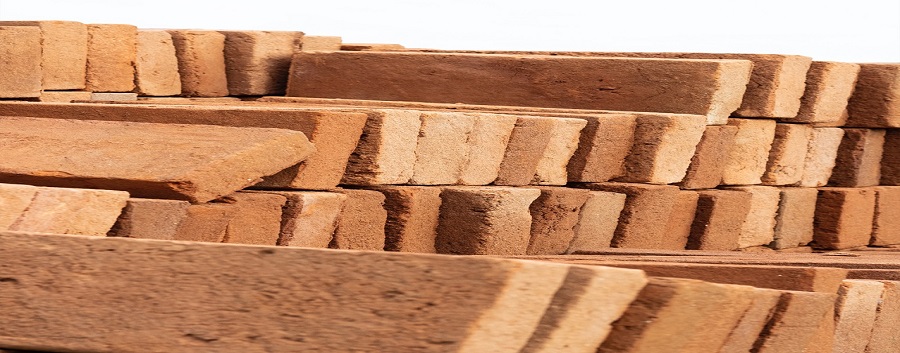Special Offers




Special Offers





What is bricks?
Bricks are building materials typically made from clay, shale, or concrete, molded into rectangular blocks and fired in a kiln to achieve strength and durability. They serve as essential components in construction, providing structural support for walls, facades, and foundations. Bricks also offer insulation and come in various sizes, styles, and colors, making them versatile in architectural design.
Importance o Bricks in Housing Construction
Bricks are integral to home construction, providing durability, insulation, and aesthetics. Their solid structure offers load-bearing capacity for walls and foundations, ensuring a sturdy and long-lasting home. Bricks also contribute to energy efficiency by providing thermal insulation. Furthermore, they offer design versatility with various sizes, textures, and colors, enhancing a home's curb appeal. Bricks have been a trusted building material for centuries, embodying a timeless blend of strength and architectural charm in residential construction.
Factors to Consider When Selecting Bricks for Home Construction in India
Building a home is a significant investment, and choosing the right construction materials is crucial to ensure the longevity, structural integrity, and aesthetics of your property. When it comes to bricks, which are a fundamental component of Indian architecture, there are several factors to consider to make an informed choice. In this blog, we will delve into the key considerations for selecting the right bricks for your home construction project in India.
1. Brick Type:
Common Bricks: These are suitable for general construction purposes and are commonly used in India.
Engineering Bricks: If you need higher strength and durability, especially for load-bearing walls, engineering bricks are a better choice.
Face Bricks: For an attractive exterior finish, opt for face bricks that come in a variety of colors and textures.
2. Quality and Grade:
Ensure that the bricks conform to Indian standards, typically denoted by an IS code. This ensures quality and durability.
Look for bricks that have uniform size, shape, and color for a neater appearance in your construction.
3. Composition:
While traditional clay bricks are widely used in India, consider eco-friendly alternatives like fly ash bricks that can be more sustainable and cost-effective.
4. Strength:
Assess the compressive strength of the bricks to make sure they are suitable for the intended purpose, especially for load-bearing walls.
5. Thermal Properties:
India has diverse climates, so choose bricks with good thermal insulation properties to help regulate indoor temperatures effectively.
6. Water Absorption:
Lower water absorption rates are preferred to prevent damage and efflorescence on your walls.
7. Sound Insulation:
If you value a quieter indoor environment, consider bricks with soundproofing properties.
8. Cost:
Balance quality and cost-effectiveness to ensure that the bricks fit within your budget constraints.
9. Sustainability:
Opt for bricks made from sustainable materials and eco-friendly manufacturing processes to reduce your environmental footprint.
10. Local Availability:
Choose bricks that are readily available in your region to minimize transportation costs and delays.
11. Aesthetics:
Consider the appearance, texture, and color of the bricks to ensure they align with your home's design and architectural style.
12. Durability:
Evaluate the bricks' resistance to weathering, pests, and other environmental factors that are prevalent in your specific region.
13. Supplier Reputation:
Source bricks from reputable manufacturers or suppliers with a proven track record of delivering quality materials.
14. Building Codes and Regulations:
Ensure that the bricks you choose comply with local building codes and regulations applicable to your area.
15. Expert Advice:
It's always a good idea to consult with an architect or structural engineer. They can provide valuable insights and recommendations based on your unique project requirements.
FAQs for Selection of Bricks
1. **What types of bricks are commonly used for home construction in India?**
- Common types of bricks used in India include clay bricks, fly ash bricks, and concrete blocks. Clay bricks are the most traditional choice.
2. **How do I choose the right type of brick for my home construction project in India?**
- The choice depends on factors like budget, climate, and structural requirements. Clay bricks are suitable for most regions, while fly ash bricks are eco-friendly and economical.
3. **What are the standard sizes and dimensions of bricks used in Indian construction?**
- In India, the standard size of a brick is 230 mm x 115 mm x 75 mm (9 inches x 4.5 inches x 3 inches). However, variations exist, so it's essential to confirm with your supplier.
4. **Are there specific considerations for brick quality and durability in India?**
- Yes, ensure that the bricks have a uniform shape, size, and color. Check for any cracks, chips, or deformities. Bricks should meet Indian standards for strength and durability.
5. **What are the advantages of using interlocking bricks in Indian home construction?**
- Interlocking bricks offer improved stability and can reduce the need for mortar, making construction quicker and more cost-effective. They are also known for their thermal insulation properties.
Conclusion:
In the diverse landscape of Indian home construction, choosing the right bricks is a pivotal decision that influences your home's strength, durability, and aesthetics. By considering factors such as brick type, quality, thermal properties, cost, and sustainability, you can navigate this crucial choice effectively. Striking a balance between traditional clay bricks and eco-friendly alternatives like fly ash bricks ensures that you contribute to sustainability without compromising on structural integrity. Seek professional advice, adhere to local regulations, and prioritize your unique project needs to create a home that not only stands the test of time but also reflects your vision and values.
Explore the key steps of Home Construction from concept to completion